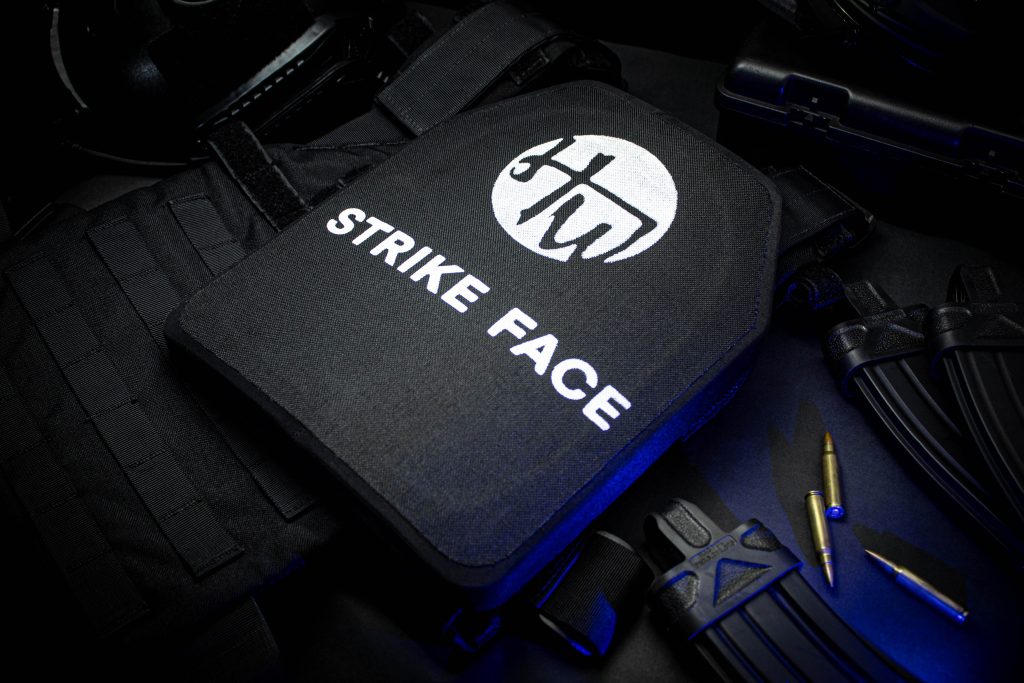Is It Legal? A Guide to Understanding Civilians’ Access to Level 4 Body Armor
In a world where personal safety is a growing concern, the demand for high-level body armor has skyrocketed. But as civilians seek to protect themselves, questions about the legality of owning and using level 4 body armor have arisen. In this comprehensive guide, we will delve into the intricacies of civilian access to level 4 body armor, shedding light on the legal framework surrounding this crucial protective gear. From understanding the different levels of body armor to navigating the legal requirements, we will provide you with the knowledge and insights necessary to make informed decisions about your personal safety. Whether you’re a law-abiding citizen looking for enhanced protection or a curious observer wanting to stay informed, this guide will equip you with the information you need to navigate the often complex world of level 4 body armor legality. So let’s dive in and uncover the truth behind this vital aspect of personal security.

Understanding the Legalities of Body Armor
Body armor, in its various forms, has become a topic of interest and concern for many individuals seeking personal protection. When it comes to understanding the legality of body armor, it’s essential to distinguish between federal and state laws. While federal laws provide a baseline, state laws can vary significantly, resulting in varying levels of restrictions or permissions. By gaining a comprehensive understanding of the legal framework surrounding body armor, individuals can make informed decisions about their acquisition and use.
Federal laws on body armor are primarily concerned with the sale, possession, and use of body armor by convicted felons. The United States Code, Title 18, Section 931, states that it is illegal for anyone convicted of a violent felony to purchase, own, or possess body armor. This federal law is in place to prevent individuals with a history of violence from obtaining additional protection that could potentially be used to commit further crimes. It’s important to note that this law only applies to convicted felons and does not restrict the purchase or ownership of body armor by law-abiding citizens.
State laws on body armor, on the other hand, can vary significantly from one state to another. Some states may have additional restrictions on the purchase, ownership, or use of body armor by civilians, while others may have no specific laws regarding body armor at all. It is crucial for individuals to familiarize themselves with the laws of their respective states to ensure compliance. In some states, body armor may be legal for purchase and ownership by anyone, while in others, it may be restricted to certain individuals or professions. Understanding these state-specific laws will help individuals make informed decisions about their body armor requirements.
Exceptions and restrictions on body armor ownership can exist even within states that permit civilian access. For example, while body armor may be legal to purchase and own, certain jurisdictions may have restrictions on its use in public spaces or during the commission of certain crimes. Additionally, some states may require individuals to obtain a permit or license for the possession of body armor. These exceptions and restrictions are put in place to ensure that body armor is used responsibly and does not aid criminal activities. It is essential for individuals to familiarize themselves with these specific regulations to avoid any legal complications.
Purchasing Level 4 Body Armor
Now that we have a better understanding of the legal framework surrounding body armor, let’s explore the process of purchasing level 4 body armor. Level 4 body armor is designed to provide the highest level of protection against various types of ammunition, including armor-piercing rounds. Due to its enhanced capabilities, level 4 body armor is subject to additional regulations and restrictions compared to lower-level body armor.
When purchasing level 4 body armor, it is important to ensure that the manufacturer and the specific product comply with all applicable regulations. The National Institute of Justice (NIJ) sets the standards for body armor, including level 4 armor, and certifies products that meet these standards. It is crucial to choose a reputable manufacturer that produces NIJ-certified level 4 body armor to ensure its effectiveness and legality.
Additionally, individuals should consider their specific needs and requirements when selecting level 4 body armor. Level 4 armor can be quite heavy and bulky, making it less suitable for everyday use. It is essential to assess the intended use of the body armor and consider factors such as comfort, maneuverability, and concealability. Consulting with experts or professionals in the field can provide valuable insights and guidance in choosing the right level 4 body armor for individual needs.
Proper Use and Safety Considerations
While owning level 4 body armor can provide enhanced protection, it is crucial to understand and adhere to proper use and safety considerations. Body armor is designed to protect against various threats, but it is not invincible, and its effectiveness can be compromised if not used correctly.
First and foremost, it is essential to ensure that the body armor fits properly. Ill-fitting armor may not provide adequate coverage or may restrict movement, limiting its effectiveness in critical situations. Following the manufacturer’s guidelines for fitting and adjusting the armor is crucial to ensure optimal protection.
Regular maintenance and inspection of body armor are also important to maintain its effectiveness. Over time, wear and tear, exposure to environmental factors, and aging can affect the integrity of the armor. Inspecting the armor for any signs of damage or degradation and promptly addressing any issues is essential to ensure continued protection.
Proper care and storage of body armor are equally important. Storing the armor in a cool, dry place away from direct sunlight or extreme temperatures can help extend its lifespan. Additionally, following the manufacturer’s instructions for cleaning and maintenance will help preserve the armor’s protective capabilities.
Myths and Misconceptions about Body Armor
As with any topic of interest, myths and misconceptions often surround body armor. These misconceptions can lead to misinformation and confusion, making it essential to separate fact from fiction. Let’s debunk some of the common myths and misconceptions about body armor.
Myth 1: Body armor makes you invincible. While body armor provides a significant level of protection, it is not invincible. It is designed to reduce the risk of injury, but it does not guarantee complete immunity to all threats.
Myth 2: Body armor is illegal for civilians. As we have discussed earlier, the legality of body armor for civilians varies by state. In many states, it is legal for civilians to purchase and own body armor, including level 4 armor.
Myth 3: Body armor is too heavy and cumbersome for everyday use. While level 4 body armor can be heavy and bulky, there are lighter and more flexible options available for everyday use. It is essential to choose the right body armor that suits individual needs and requirements.
Alternatives to Level 4 Body Armor
While level 4 body armor provides the highest level of protection, it may not be suitable or necessary for everyone. There are alternatives available that offer varying levels of protection while being more lightweight and comfortable for everyday use. Let’s explore some of the alternatives to level 4 body armor.
Alternative 1: Level 3 body armor. Level 3 body armor offers a high level of protection against most common handgun rounds and some rifle rounds. It is lighter and more flexible than level 4 armor, making it suitable for everyday wear.
Alternative 2: Concealed carry options. If the primary concern is personal safety in everyday situations, concealed carry options such as handguns or tasers may be more practical. These options provide a level of personal protection without the bulkiness of body armor.
Alternative 3: Self-defense training. Investing in self-defense training can provide individuals with the knowledge and skills necessary to protect themselves in various situations. While not a physical protective measure like body armor, self-defense training can be a valuable tool in personal safety.
Conclusion
In conclusion, understanding the legalities surrounding civilians’ access to level 4 body armor is essential for anyone looking to enhance their personal safety. Federal laws primarily focus on restricting body armor possession for convicted felons, while state laws can impose additional restrictions or permissions. By familiarizing themselves with the legal framework, individuals can navigate the complexities of body armor ownership effectively.
When purchasing level 4 body armor, choosing a reputable manufacturer that produces NIJ-certified products is crucial. Proper use, maintenance, and storage considerations are essential to ensure the armor’s effectiveness and longevity. Debunking common myths and exploring alternatives to level 4 body armor can help individuals make informed decisions about their personal safety needs.
Remember, personal safety is a priority, and being well-informed is the first step towards achieving it. Stay aware, stay prepared, and stay safe.
